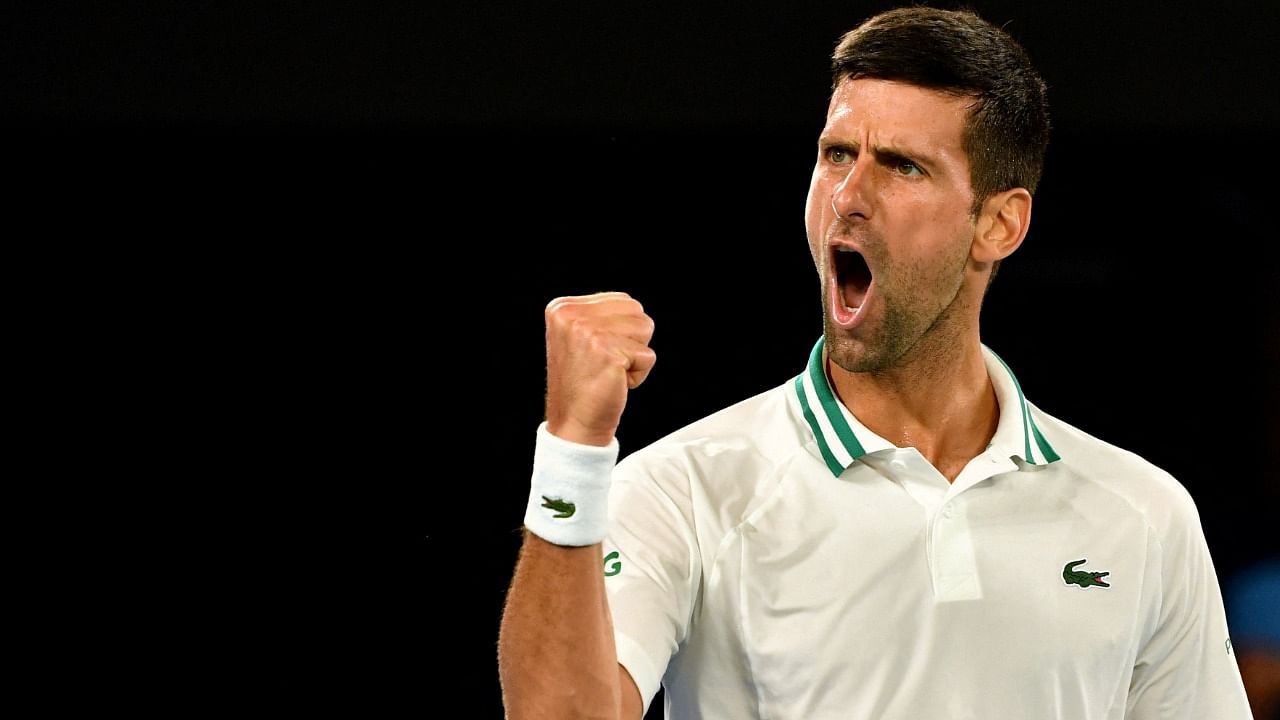
Healing "pyramids", a personal guru, and a strict plant-based diet are some of the few eccentricities Novak Djokovic has dabbled in over the course of his stellar tennis career.
Djokovic's predilection to turn to the unusual -- from hyperbaric chambers to meditation with Spanish guru Pepe Imaz, a former journeyman player who extols a "love and peace" philosophy -- makes him stand out from other tennis stars, who tend to embrace a more straight-laced lifestyle.
Born and raised in war-weary Belgrade amid the bloody break-up of Yugoslavia in the 1990s, he used to practise in a disused swimming pool and like many others waited in long lines for bread, milk and other basic necessities.
Djokovic has hailed his family roots for his on-court passion as well as the struggles in growing up in Serbia.
"Part of it is genes. We grew up in difficult times for my country and failure was never an option," he said at Wimbledon last year.
"We had to find basic ways to survive, that strengthened my character.
"Also my upbringing in the mountains I spent a lot of time with wolves -- this is wolf energy. I'm not kidding."
The 34-year-old Serbian has cashed in over $150 million in prize money and lives in the millionaire's playground of Monte Carlo.
But despite the money and fame, Djokovic has stayed close to his roots all the while embracing the occasional unconventional remedy.
The tennis ace is also known for his fondness of a Bosnian hill town of Visoko, where thousands flock every year to what some believe are an ancient man-made pyramid complex enshrined with healing powers -- a claim questioned by scientists.
In 2020, Djokovic made back-to-back pilgrimages to the park and invited "all athletes" to take advantage of the healthy oxygen levels.
"I know there are many doubts and dilemmas about the authenticity (of the place)," he told AFP after a visit.
But "in order to fully understand what is going on here... you have to come".
Djokovic also made headlines after claiming it was possible to alter the composition of water and food through the power of positive thinking.
"I've seen people and I know some people that through energetical transformation, through the power of prayer, through the power of gratitude, they manage to turn the most toxic food or the most polluted water, into the most healing water," said Djokovic during an online exchange with "wellness guru" Chervin Jafarieh.
"Because water reacts and scientists have proven that molecules in the water react to our emotions to what is being said," he added.
At home in the Balkans, tennis buffs and the casual sports fans alike cheer for the Serb who is known for his humanitarian work as much as for his sports success.
Donations he made in 2014 to Croatia, Bosnia and Serbia, hit by catastrophic floods, as well as appeals to help them are still remembered.
And despite stoking controversy for his vaccine scepticism, Djokovic made early donations in Serbia to help fight the coronavirus pandemic while also purchasing ventilators for neighbouring Montenegro.
He has since tested positive for Covid twice, including in June 2020 during a controversial tour in the Balkans that turned into a "cluster" and last December when he appeared maskless at events in Belgrade.
In December, Djokovic briefly added his voice to concerns over a government-backed lithium mine in Serbia, writing on social media that "clean air, water and food are keys to health" amid mass protest against the future project.
"Without that, every word about 'health' is obsolete", Djokovic added.
Watch the latest DH Videos here: